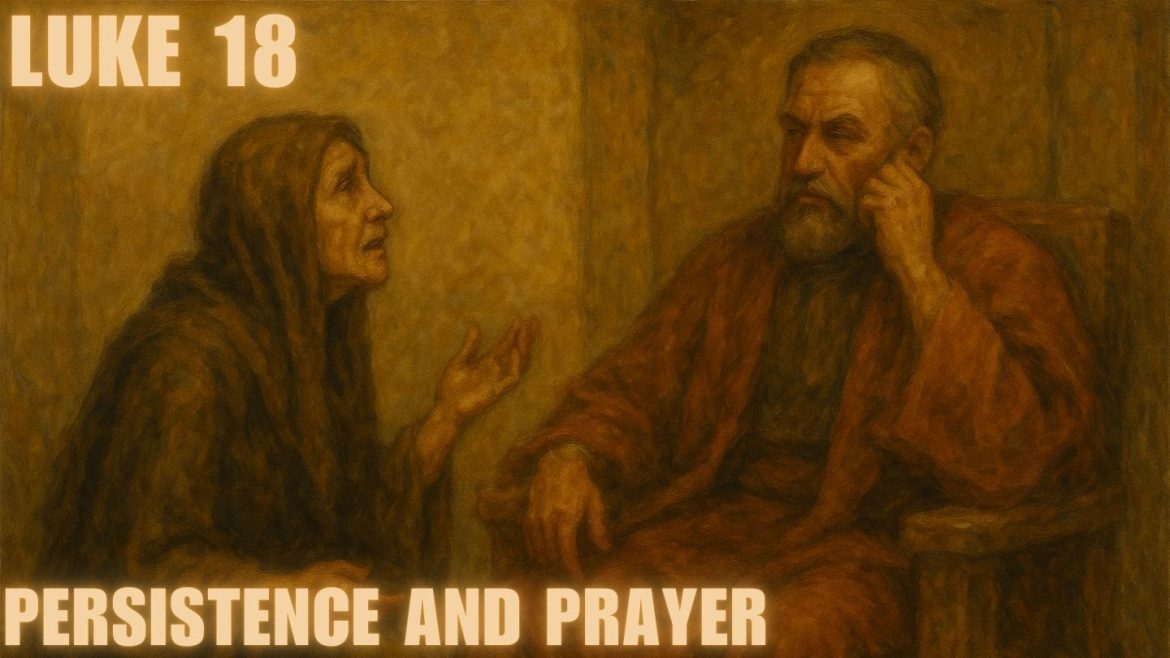In Luke 18, Jesus shares profound teachings through parables and actions that resonate deeply with themes of persistent faith, humility, and the nature of God’s justice. This chapter offers rich insights that are as relevant today as they were in ancient times.
The Parable of the Persistent Widow
Jesus begins with the parable of the persistent widow, a story designed to encourage continuous prayer and faith in God’s justice. The widow, relentlessly seeking justice from an indifferent judge, ultimately receives it due to her persistence. Jesus uses this parable to illustrate that if even an uncaring judge can be moved by persistence, how much more will a loving God respond to the persistent prayers of His people? This teaches us the importance of steadfastness in prayer and trust in God’s timely justice.
The Pharisee and the Tax Collector
Next, Jesus contrasts the attitudes of a Pharisee and a tax collector praying in the temple. The Pharisee, filled with self-righteousness, thanks God that he is not like other sinners, while the tax collector, in humility, begs for God’s mercy. Jesus emphasizes that the tax collector, who humbles himself, is justified before God, unlike the Pharisee who exalts himself. This parable underscores the value God places on humility and repentance over self-righteousness and pride.
Childlike Faith
Jesus then highlights the importance of receiving the kingdom of God like a child. When people bring their children to Jesus, the disciples rebuke them, but Jesus welcomes the children, stating that the kingdom of God belongs to such as these. This signifies that entry into God’s kingdom requires a simple, trusting, and humble faith, much like that of a child, devoid of cynicism and self-importance.
The Rich Young Ruler
The encounter with the rich young ruler further explores the challenges of wealth in spiritual life. The ruler, despite his adherence to the commandments, is unable to part with his wealth to follow Jesus. Jesus remarks on the difficulty for the wealthy to enter the kingdom of God, comparing it to a camel passing through the eye of a needle. This highlights the danger of material possessions becoming a barrier to spiritual devotion and underscores the necessity of prioritizing God over worldly riches.
Jesus Foretells His Death
Jesus also foretells his impending suffering and resurrection, a reminder of the ultimate sacrifice He is about to make. Despite the disciples’ lack of understanding, Jesus’ prediction reinforces the prophecy and the fulfillment of God’s plan for salvation through His death and resurrection.
Healing the Blind Beggar
Finally, Jesus heals a blind beggar near Jericho, demonstrating the power of faith and persistence once again. The beggar’s unwavering cries for mercy, despite the crowd’s attempts to silence him, result in his sight being restored. This miracle reaffirms that faith in Jesus and persistent pursuit of His mercy can lead to profound transformation and healing.
Conclusion
Luke 18 encapsulates essential Christian values: persistent faith, humility, childlike trust, and the renunciation of materialism. These teachings invite reflection on our attitudes toward prayer, humility, wealth, and faith. As we navigate our spiritual journeys, these lessons from Jesus encourage us to persevere in faith, embrace humility, and prioritize our relationship with God above all else.

